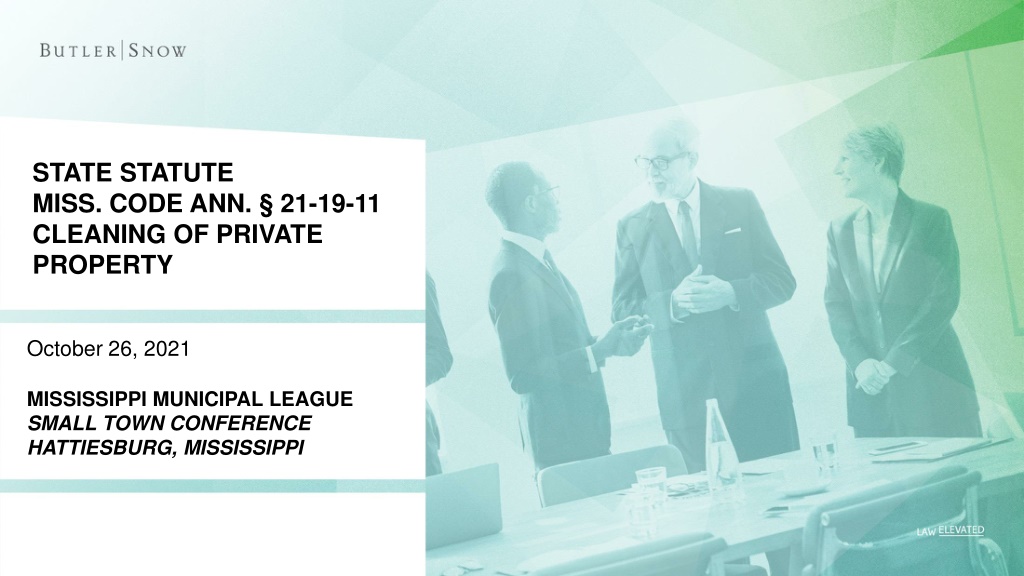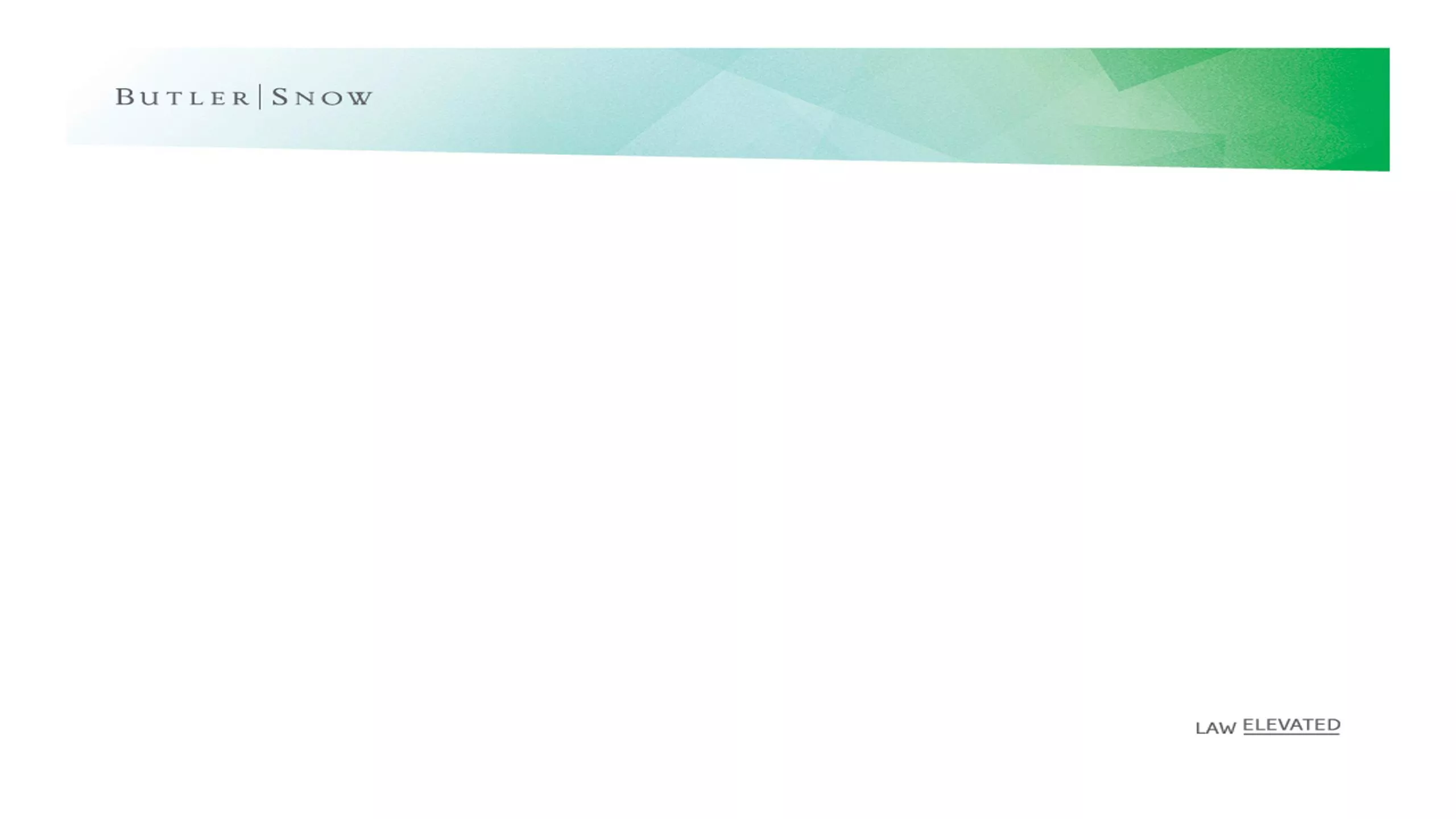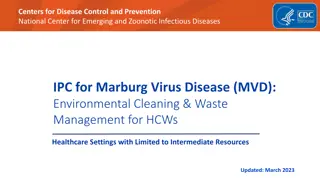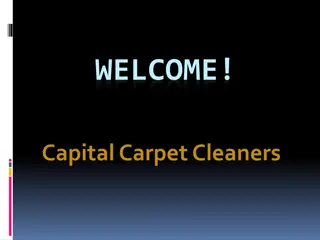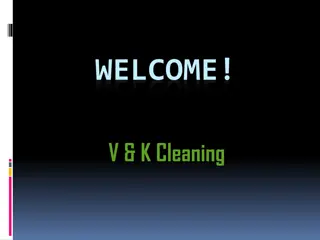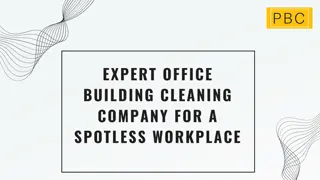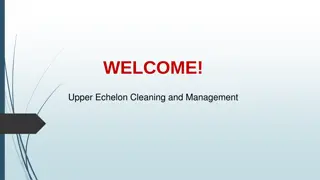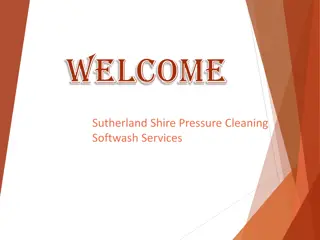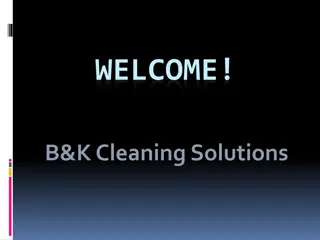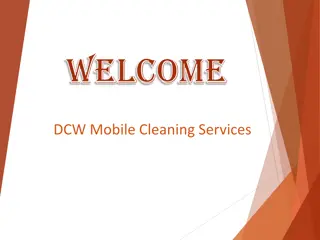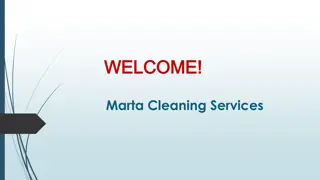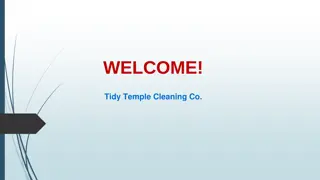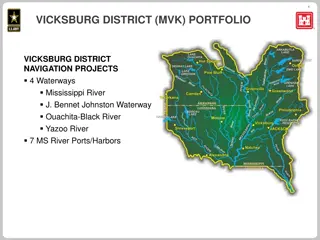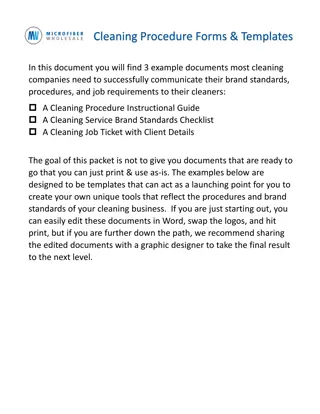Mississippi State Statute on Cleaning of Private Property
Mississippi Code Annotated 21-19-11 outlines the provisions for cleaning private properties within city limits. The statute covers various activities such as cutting grass, removing debris, draining cesspools, and more. It specifies the scope of properties covered, including commercial, residential, railroads, public utilities, and historic preservation districts. The process entails setting hearings by the governing authority, notifying property owners, and ensuring compliance with notice requirements. No exemptions are granted for elderly, charitable organizations, or churches.
Download Presentation

Please find below an Image/Link to download the presentation.
The content on the website is provided AS IS for your information and personal use only. It may not be sold, licensed, or shared on other websites without obtaining consent from the author. Download presentation by click this link. If you encounter any issues during the download, it is possible that the publisher has removed the file from their server.
E N D
Presentation Transcript
STATE STATUTE MISS. CODE ANN. 21-19-11 CLEANING OF PRIVATE PROPERTY October 26, 2021 MISSISSIPPI MUNICIPAL LEAGUE SMALL TOWN CONFERENCE HATTIESBURG, MISSISSIPPI
CLEANUP STATUTES Miss. Code Ann. 21-19-20: Demolishing Drug Houses Miss. Code Ann. 21-19-21: Fire Prevention Miss. Code Ann. 39-13-1 et. seq: Historic Preservation Act Miss. Code Ann. 21-19-11: Cleanup Statute Miss. Code Ann. 21-23-7(14): Municipal Court
MISS. CODE ANN. 21-19-11 APPLICATION & PROCESS
USES OF MISS. CODE ANN. 21-19-11 Cutting grass and weeds; Filling cisterns; Removing rubbish, abandoned or dilapidated fences, outside toilets, abandoned or dilapidated buildings, slabs, personal property and other debris; and Draining cesspools and standing water.
SCOPE OF MISS. CODE ANN. 21-19-11 Property within City limits Commercial & Residential Developed & Undeveloped Railroads Public utilities Historic Preservation Districts Perpetual Care Cemeteries Special treatment State owned property - Get permission! No exemptions for elderly, charitable organizations or churches
HEARING SET BY GOVERNING AUTHORITY Can set hearing itself; or Delegate setting the hearing to an administrative staff member or Mayor; or Upon receipt of petition from a majority of residents living within 400 feet of the property
NOTICE OF HEARING Notice must be sent to Property Owner Notice requirements Language that informs property owner of 2 year right of re-entry Include notice in the minutes of the City Required methods of notice 2 weeks before hearing: Mail Notice The address of the subject property, except vacant property; and The address where the ad valorem tax notice is sent Certified mail not required Posting Notice On the property; and At City Hall or somewhere in town where such notices would be normally be posted State-owned properties Not required if Secretary of State grants authorization
KEY POINTS FOR NOTICE Consider unique information The City has an obligation to provide notice based on information that it either receives or knows about a property owner Sometimes notices will fail Include all City s efforts to find property owners and to provide notice in the minutes of hearing to adjudicate the condition of the property
THE HEARING Conducted by Board of Alderman/Council Whether the property is a menace to the public health, safety and welfare of the community Common interest affected rather than the interest of a particular individual Minutes of hearing should include: Extensive documentation and photos that supports decision Attempts at notice A finding that the property owner has been properly served Decision can be appealed within 10 days of meeting
THE CLEANUP Permission to enter property is not needed Work must be consistent with the resolution adjudicating that the property needs cleaning
THE CLEANUP Work cannot improve, restore or landscape private property The Act does not permit a city to board-up windows and doors to secure abandoned structures However, with approval of the Department of Archives and History, repairs can be made to buildings in historic districts. Miss. Code Ann. 39-13-15 Comply with Public Bid Laws
DISPOSAL OF PERSONAL PROPERTY Contract with vendor regarding disposal of property Reasonable care standard if property held for owner
RE-ENTRY FOR SUBSEQUENT CLEANING 12 Month & 24 Month Re-entry Periods 7 days notice required for each re-entry Posted on property; and At City Hall or somewhere in town where such notices would be normally be posted There is no new hearing required for each re-entry Re-entry work must be consistent with decision at the hearing adjudicating the property to be in need of cleaning
RE-ENTRY FOR SUBSEQUENT CLEANING 12 Month Period Re-enter 6 times Scope: Remove dilapidated buildings Remove dilapidated fences Remove outside toilets 24 Month Period Re-enter 12 times Scope: Cut grass and weeds Remove rubbish Remove personal property Remove other debris
COLLECTING THE COST OF CLEANUP
COST OF CLEANUP Cost includes Actual costs of the work done either by the city or a third party; Administrative costs; Penalty imposed; and Legal costs Statutory Limits on Cost Greater of $20,000 per calendar year; or Fair market value of the property subsequent to cleaning Limitation refers only to the cost of cleaning and does not include any penalty Hazardous waste cleanup is not part of the cost limit
COST OF CLEANUP Penalty Greater of Not to exceed $1,500; or Not to exceed 50% of the actual cost of the cleanup May be assessed each time the city re-enters property City must adjudicate the cost of cleaning at a meeting and at that time assess the penalty Penalties shall not be assessed against the State of Mississippi
COLLECTING COSTS Civil Suit Assessment Lien/Tax Sale Perpetual Cemetery Trust Lien Amnesty
EXPEDITED PROCEDURE Applies to >1,500 population; and <1 acre or Cost to clean <$250 Notice 7 days notice by mail ; and Post Notice Hearing Officer makes adjudications Expense of cleaning property limited to no more than $250 per cleaning, plus an administrative fee of no more than $50 per cleaning, and a penalty may be imposed of $100 or 100% of the actual cleaning costs, whichever is more May re-enter property up to 6 times within 1 year May re-enter property up to 12 times within 2 years Total aggregate actual cost of cleaning property may not exceed $1,000 per year
